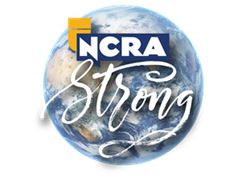By Andrea Kreutz
As certified legal videographers, our job is to record what happens while on the record. This can include how people say words. Did the deponent sound respectful? Were they being sarcastic? Did they pause a little too long? Did it seem like they were creating a new version of the truth as they testified?
Say the following sentences out loud while watching your face in a mirror. Go ahead, grab a mirror. I’ll wait. Have one? Great.
I love eating {insert your favorite dessert}.
I love eating {insert your least favorite food}.
Repeat the second sentence using the tone and mannerisms of the first sentence. Do you look convincing in the mirror? If you practiced the second sentence enough, do you think you could fool someone who does not know you? If you wrote the second sentence on a piece of paper and handed it to someone you do not know, would they have any reason to doubt what you have written?
Syncing a video clip with an exceptional transcript paints a whole picture by adding a visual element to the deposition testimony. It can make the jury feel like they are witnessing live testimony with captioning because they convey emotion (or lack thereof, allowing juries to witness the long silences or pauses that are lost in the text). Court reporters are not allowed to place editorial comments such as “witness sighed heavily” or “witness laughing and rolling eyes” into the transcript. It can be the difference between the jury believing a witness and not believing a witness. Video depositions often are utilized in settlement proceedings as well.
Certified legal videographers enhance the legal process, but we cannot replace the official record created by a verbatim stenographic reporter. “If it isn’t on paper, it didn’t happen.” A high-definition video with impeccable sound cannot be read verbally in court from a piece of paper. Video recording depositions is also helpful and useful when expert witnesses cannot be present to provide live testimony. Sometimes the testimony is preserved because a witness is gravely ill and may not be able to testify at trial.
While it may be tempting to run the video file through automated speech recognition software, the results can vary widely and are never 100 percent accurate. A fire truck driving by, a noisy air conditioning unit, or a muffled microphone can cause undeterminable words. A machine does not know that it did not hear properly. A machine will not stop the proceedings for clarification. This does not even consider the potential for hardware failure. Attorneys should not video record proceedings themselves or ask court reporters to video record proceedings. Instead, they should hire a proven professional to take responsibility for recording and preserving a video record of proceedings. Certified Legal Video Specialists (CLVS) are trained through NCRA with the knowledge and skills to use video equipment to provide AV-related services to the litigation industry. They invest in professional cameras and sound equipment to record testimony. They are skilled in monitoring sound and are following court rules related to video recording testimony. They work with court reporters in creating a fully synchronized transcript that can be loaded into the software of your choice to present to juries when and where you need it.
If someone were malicious, they could easily video edit the following to remove lines 12 and 13. In doing so, it makes it appear that the answer to the first question is yes.
10 Q. Have you had any improvement in the heating and cooling of those two north bedrooms
11 since replacing the thermostat?
12 A. No.
13 Q. Have you had any issues with frozen pipes or anything like that?
14 A. Yes.
With advancements in video-editing software and deep fake technology, it becomes of paramount importance to hire a verbatim stenographic reporter and a Certified Legal Video Specialist to ensure we maintain the public’s trust. According to the National Center for State Courts, “Because the judicial branch relies heavily on public support to perform its role in our system of government, public trust and confidence is a precious commodity for the courts.”
Combining the written record with a video record is an excellent way to impeach a witness as juries can view both the written version and the video version of the testimony. Sometimes attorneys only want to show excerpts of a witness’s given testimony. That’s easy to call up and display for the jury. The best way to remain NCRA STRONG is to refuse to record a proceeding without a verbatim stenographic reporter present.
For more information on altering digital files, please read the article, When statutes and court rules are silenced by stipulation housed in the NCRA STRONG Resource Library.
Andrea Kreutz, CLVS, is a freelance videographer and agency owner from Des Moines, Iowa. She can be reached at andreak@huneyvaughn.com.




